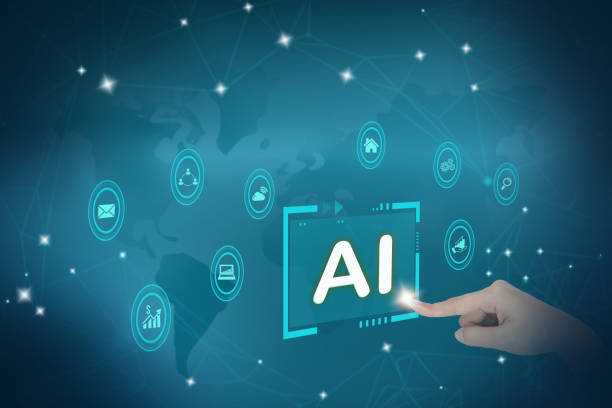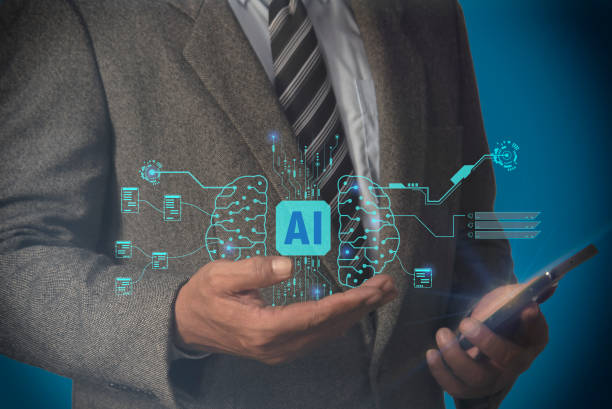What is an Artificial Intelligence Robot and How Does it Work?
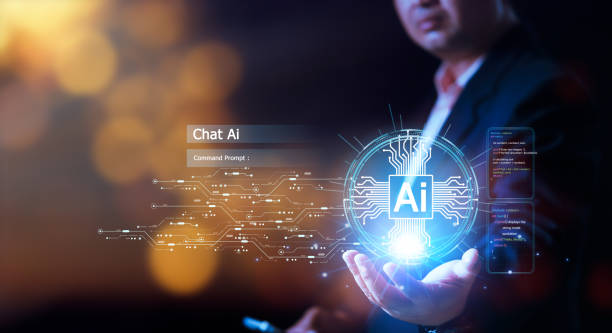
#Artificial_Intelligence (AI) is rapidly advancing, and the artificial intelligence robot is one of the most interesting and practical manifestations of this progress.
An artificial intelligence robot is actually a computer program capable of performing tasks that usually require human intelligence, such as learning, problem-solving, decision-making, and understanding natural language.
These robots use complex algorithms such as machine learning, neural networks, and natural language processing (NLP) to analyze data and identify patterns.
The basic operation of an artificial intelligence robot is based on receiving data, processing it, and generating an appropriate response.
Data can include text, images, audio, or any other type of information.
The artificial intelligence robot analyzes this data using its algorithms and identifies the patterns in it.
Then, according to these patterns and using the knowledge and experience that has been given to it in advance, it produces the appropriate response.
For example, an artificial intelligence robot designed to answer customer questions first receives the customer’s question, then analyzes it using NLP, and finally searches its knowledge base to find the appropriate answer and provides it to the customer.
Artificial intelligence robots are used in various industries.
Among the most important applications of these include customer service, process automation, marketing, medicine, and education.
In customer service, an artificial intelligence robot can answer customer questions and solve their problems 24 hours a day, 7 days a week.
In process automation, an artificial intelligence robot can automatically perform repetitive and time-consuming tasks and increase productivity.
In marketing, an artificial intelligence robot can help personalize advertising messages and provide appropriate suggestions to customers.
In medicine, an artificial intelligence robot can help diagnose diseases and provide appropriate treatments.
And finally, in education, an artificial intelligence robot can help provide personalized training and answer student questions.
Did you know that 85% of customers check your company’s website before any interaction?
Build a corporate website that deserves your credibility with Rasaweb.
✅ Increase customer credibility and trust
✅ Attract high-quality leads
⚡ Get free website design consultation
The Role of Artificial Intelligence Robots in Process Automation

Process automation is one of the most important applications of artificial intelligence robots.
These robots can automatically perform repetitive, time-consuming, and error-prone tasks, leading to increased productivity, reduced costs, and improved quality.
Artificial intelligence robots can be used in process automation in various fields such as data entry, order processing, inventory management, and responding to customer requests.
One of the key benefits of using artificial intelligence robots in process automation is the reduction of human error.
Humans may make mistakes due to fatigue, carelessness, or lack of concentration, but an artificial intelligence robot can perform tasks continuously and without error.
This is especially important in processes that require high accuracy, such as processing financial or medical information.
In addition, an artificial intelligence robot can perform tasks much faster than humans, leading to increased speed and efficiency of processes.
Another benefit of using artificial intelligence robots in process automation is cost reduction.
By automating tasks, organizations can reduce the need for manpower and save on costs related to wages, training, and benefits.
In addition, artificial intelligence robots can also help reduce the costs associated with errors and rework.
In general, the use of artificial intelligence robots in process automation can lead to a dramatic improvement in productivity, reduced costs, and increased profitability.
Examples of the application of artificial intelligence robots in process automation include:
- Automatic processing of invoices and payments
- Automatic response to customer questions
- Automatic inventory management
- Automatic data entry into various systems
Applications of Artificial Intelligence Robots in Customer Service

Customer service is one of the areas where artificial intelligence robots have had a significant impact.
Artificial intelligence robots can answer customer questions, solve their problems, and provide them with the information they need 24 hours a day, 7 days a week.
This leads to improved customer experience, increased satisfaction and loyalty.
One of the main applications of artificial intelligence robots in customer service is answering frequently asked questions by customers.
The artificial intelligence robot can understand customer questions using natural language processing (NLP) and find the appropriate answer from its knowledge base.
This makes it possible for customers to quickly and easily find the answers to their questions without having to wait for a human operator to respond.
In addition to answering questions, artificial intelligence robots can also help solve customer problems.
For example, if a customer has a problem with a particular product or service, the artificial intelligence robot can help them solve their problem by providing step-by-step guidance.
If the artificial intelligence robot cannot solve the customer’s problem, it can refer them to a human operator.
The benefits of using artificial intelligence robots in customer service include:
- 24/7 availability
- Quick and easy answering of questions
- Solving customer problems
- Reducing customer service costs
- Improving customer experience
Here is an example of how to use artificial intelligence robots in customer service:
| Scenario | How the Artificial Intelligence Robot Works |
|---|---|
| The customer has a question about the status of their order. | The artificial intelligence robot, by receiving the order number from the customer, checks the status of the order and informs the customer. |
| The customer has a question about how to use a product. | The artificial intelligence robot understands the customer’s question using natural language processing and provides the necessary guidance. |
| The customer is dissatisfied with a product or service. | The artificial intelligence robot, by receiving the customer’s complaint, collects the necessary information and refers the customer to the relevant department. |
Artificial Intelligence Robots and Personalizing Customer Experience
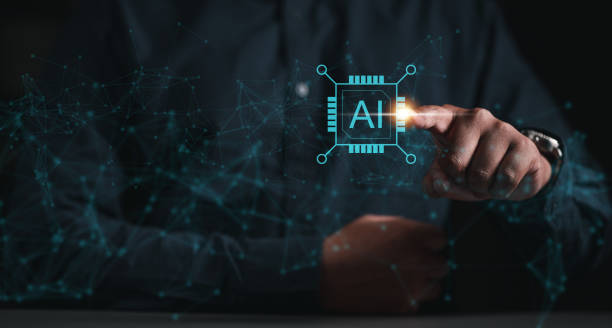
One of the key benefits of artificial intelligence robots is their ability to personalize the customer experience.
By analyzing customer data, artificial intelligence robots can identify their needs, preferences, and behaviors, and provide suggestions and messages tailored to each customer.
This leads to increased customer engagement, improved satisfaction and loyalty.
Artificial intelligence robots can use various data to personalize the customer experience, including:
- Demographic information (age, gender, geographic location)
- Purchase history
- Online behavior (website visits, social media engagement)
- Customer feedback
Using this data, the artificial intelligence robot can:
- Suggest related products and services to customers.
- Send personalized marketing messages.
- Adjust website content based on customer preferences.
- Provide personalized customer support.
For example, an online store can use an artificial intelligence robot to suggest products to customers that they are likely to be interested in, based on their purchase history and online behavior.
Or a financial services company can use an artificial intelligence robot to provide personalized financial advice to customers, based on their financial goals and financial situation.
Personalizing the customer experience can have many benefits for businesses, including:
- Increase sales
- Improve customer satisfaction
- Increase customer loyalty
- Improve brand image
Did you know that 85% of customers check your company’s website before any interaction?
Build a corporate website that deserves your credibility with Rasaweb.
✅ Increase customer credibility and trust
✅ Attract high-quality leads
⚡ Get free website design consultation
Artificial Intelligence Robots in Marketing and Sales
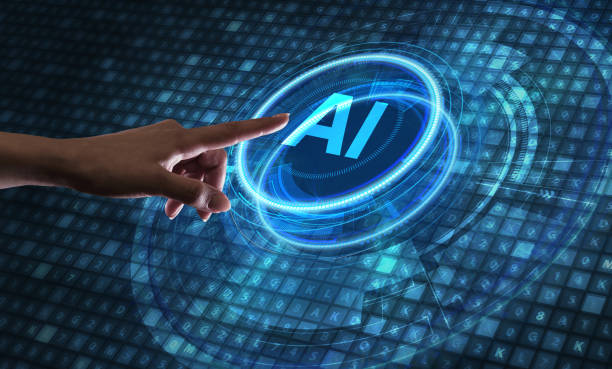
Artificial intelligence robots are a powerful tool for improving marketing strategies and increasing sales.
These robots can analyze customer data, identify their purchasing patterns and behaviors, and help marketers design and execute more effective advertising campaigns.
Also, artificial intelligence robots can help salespeople identify qualified sales leads, provide personalized offers, and close deals.
One of the main applications of artificial intelligence robots in marketing is marketing automation.
Artificial intelligence robots can automatically perform repetitive and time-consuming tasks such as sending marketing emails, managing social networks, and generating marketing reports.
This allows marketers to focus on more strategic tasks such as developing marketing campaigns and analyzing data.
In addition, artificial intelligence robots can help marketers identify qualified sales leads.
By analyzing customer data, artificial intelligence robots can identify leads that are likely to be interested in the company’s products or services and can become customers.
This helps salespeople focus their time on qualified leads and increase the chances of closing deals.
Artificial intelligence robots can also help salespeople provide personalized offers to customers.
By analyzing customer data, artificial intelligence robots can suggest products that they are likely to be interested in.
This can lead to increased sales and improved customer satisfaction.
In general, the use of artificial intelligence robots in marketing and sales can lead to increased productivity, reduced costs, and improved results.
What Will the Future of Artificial Intelligence Robots Be?
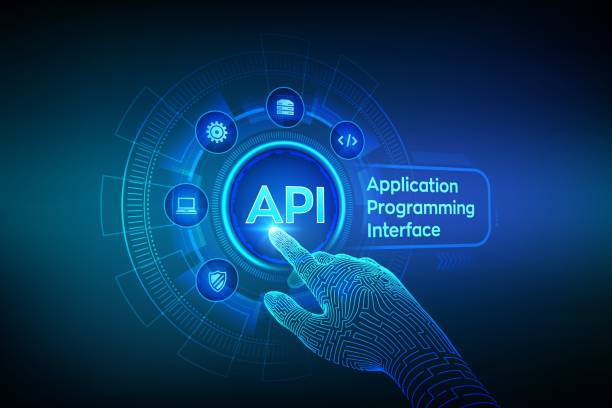
The future of artificial intelligence robots is very bright and full of possibilities.
With the increasing advancement of artificial intelligence and machine learning technologies, artificial intelligence robots will be able to perform more complex and diverse tasks and play a more prominent role in our daily lives.
It is expected that in the future, artificial intelligence robots will be used more widely in various fields such as medicine, education, transportation, industry, and customer service.
In the field of medicine, artificial intelligence robots can help doctors diagnose diseases, provide appropriate treatments, and perform complex surgeries.
In the field of education, artificial intelligence robots can help students learn new concepts, solve exercises, and receive personalized feedback.
In the field of transportation, artificial intelligence robots can help drivers drive more safely, reduce traffic, and reduce air pollution.
In the field of industry, artificial intelligence robots can help workers perform repetitive and dangerous tasks, increase productivity, and improve the quality of products.
And in the field of customer service, artificial intelligence robots can help customers receive fast and easy support, solve problems, and receive the information they need.
Of course, the advancement of artificial intelligence robots will also bring challenges.
One of the most important challenges is the concern about job losses due to automation.
However, many experts believe that the advancement of artificial intelligence robots will ultimately lead to the creation of new jobs and the improvement of working conditions.
In general, the future of artificial intelligence robots is very promising, and it is expected that this technology will have a profound impact on our lives in the coming years.
Challenges and Concerns Related to Artificial Intelligence Robots
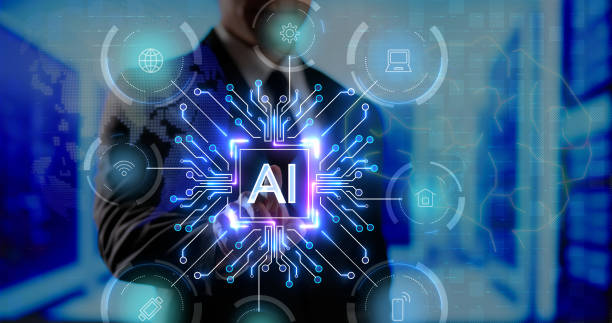
In addition to the many benefits of artificial intelligence robots, there are also challenges and concerns that need to be addressed.
One of the most important of these concerns is the discussion of ethics and accountability.
Questions such as who is responsible for the decisions and actions of an artificial intelligence robot, who should be held accountable in case of an error, and how to prevent misuse of this technology are among the questions that need to be answered.
Another concern is the issue of privacy and data security.
Artificial intelligence robots need a lot of data to perform their tasks, and this data may include the personal and sensitive information of customers.
Therefore, it is necessary to create appropriate mechanisms to protect this data and prevent unauthorized access to it.
In addition, there are concerns about the impact of artificial intelligence robots on the labor market.
Automation of processes can lead to job losses in some industries.
Therefore, it is necessary to adopt appropriate policies to support workers and help them find new jobs.
Finally, it is necessary to pay special attention to education and awareness about artificial intelligence robots.
People should be aware of this technology, its advantages and disadvantages, and how to use it correctly.
This can help reduce concerns and misunderstandings and pave the way for wider acceptance of this technology.
| Challenge/Concern | Proposed Solution |
|---|---|
| Ethics and Accountability | Developing specific laws and regulations for artificial intelligence robots, creating mechanisms for accountability and responsibility |
| Privacy and Data Security | Using strong encryption methods, creating transparent privacy policies, educating users on how to protect their data |
| Impact on the Labor Market | Providing new skill training, creating new job opportunities, supporting affected workers |
Selecting and Implementing a Suitable Artificial Intelligence Robot
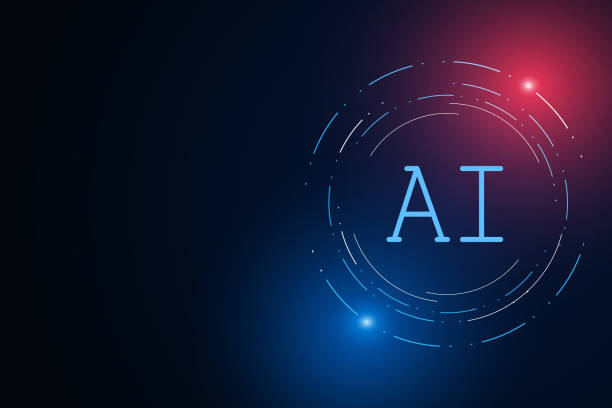
Selecting and implementing the right artificial intelligence robot for your business is an important process that requires careful planning and a deep understanding of your business needs.
First of all, you must determine your goals for using the artificial intelligence robot.
What problems do you want to solve? What processes do you want to improve? By answering these questions, you can accurately define your needs and choose the right artificial intelligence robot.
After determining your needs, you should review the various options available in the market.
There are different artificial intelligence robots with different capabilities and features.
Some robots are designed to answer customer questions, while others are suitable for automating internal processes or analyzing data.
By comparing the different options, you can choose the artificial intelligence robot that best suits your needs.
After selecting the artificial intelligence robot, you should proceed to implement it.
Implementing an artificial intelligence robot may require changes to your IT infrastructure.
Also, you need to train your employees to use the artificial intelligence robot.
With careful planning and proper execution, you can ensure the successful implementation of the artificial intelligence robot.
Here are a few tips for choosing and implementing the right artificial intelligence robot:
- Determine your goals for using the artificial intelligence robot.
- Accurately identify your business needs.
- Review and compare the different options available in the market.
- Choose the artificial intelligence robot that best suits your needs.
- Prepare your IT infrastructure for the implementation of the artificial intelligence robot.
- Train your employees to use the artificial intelligence robot.
- Continuously evaluate the performance of the artificial intelligence robot and make necessary changes if needed.
Did you know that 94% of users’ first impression of a business is related to its website design? By designing a professional corporate website by **Rasaweb**, turn this first impression into an opportunity for growth.
✅ Attract more customers and increase sales
✅ Create credibility and trust in the eyes of the audience⚡ Get a free website design consultation!
Artificial Intelligence Robots and Their Impact on Jobs

The impact of artificial intelligence robots on jobs is a topic that has sparked much debate.
On the one hand, there are concerns about job losses due to automation.
Artificial intelligence robots are capable of performing repetitive and routine tasks that were previously performed by humans, and this can lead to a reduction in the need for human labor in some industries.
On the other hand, many experts believe that artificial intelligence robots will ultimately lead to the creation of new jobs and the improvement of working conditions.
Artificial intelligence robots can perform hard and dangerous tasks, which allows humans to focus on more creative and strategic tasks.
Also, artificial intelligence robots can help increase productivity and improve the quality of products and services, which can lead to economic growth and the creation of new jobs.
In general, the impact of artificial intelligence robots on jobs is complex and multifaceted.
Some jobs may disappear, while new jobs will be created.
Also, the nature of many jobs will change.
For example, workers may need to learn new skills to be able to work with artificial intelligence robots.
To benefit from the advantages of artificial intelligence robots and prevent their negative effects, it is necessary to adopt appropriate policies.
These policies should include providing new skill training, creating new job opportunities, and supporting affected workers.
Key Tips for Success in Using Artificial Intelligence Robots

Successfully using artificial intelligence robots requires careful planning, a deep understanding of business needs, and proper execution.
Here are a few key tips for success in using artificial intelligence robots:
- Clearly define your goals.
First of all, you need to know what you want to achieve by using the artificial intelligence robot.
Do you want to increase productivity? Reduce costs? Improve customer experience? By defining your goals, you can choose the right artificial intelligence robot and develop the right strategy for implementing it. - Manage your data well.
Artificial intelligence robots need data to perform their tasks.
Therefore, you need to collect, organize, and manage your data well.
Also, you should ensure the quality of your data.
Incorrect or incomplete data can lead to incorrect results. - Get help from experts.
Implementing an artificial intelligence robot is a complex process that requires knowledge and expertise.
Therefore, it is better to get help from experts.
Experts can help you choose the right artificial intelligence robot, implement it, and train employees. - Continuously evaluate the performance of the artificial intelligence robot.
After implementing the artificial intelligence robot, you need to continuously evaluate its performance.
Has the artificial intelligence robot achieved your goals? Is there a problem? By evaluating the performance of the artificial intelligence robot, you can identify its strengths and weaknesses and make the necessary improvements. - Consider the artificial intelligence robot as a tool, not a replacement for humans.
Artificial intelligence robots are powerful tools that can help us perform tasks.
However, they cannot replace humans.
Humans have skills that artificial intelligence robots lack, such as creativity, empathy, and critical thinking.
Therefore, it is better to consider artificial intelligence robots as tools that can help us improve performance and increase productivity.
Frequently Asked Questions
| Question | Answer |
|---|---|
| What is an artificial intelligence robot? | It is a robot that uses artificial intelligence capabilities to understand the environment, reason, learn, and make decisions to perform complex tasks independently. |
| What is the main difference between a regular robot and an artificial intelligence robot? | Artificial intelligence robots can learn and adapt to their environment, while regular robots usually operate based on fixed and predetermined programming. |
| In what areas are artificial intelligence robots used? | In areas such as industry (production lines), medicine (robotic surgeries), services (customer support, smart vacuum cleaners), exploration (space and underwater), and entertainment. |
| How do artificial intelligence robots learn? | They acquire new skills through machine learning and deep learning algorithms by analyzing large data and identifying patterns. |
| Can artificial intelligence robots have emotions? | Currently, no. They can identify or simulate emotions, but they do not have a real experience of emotions like humans. |
| What are the most important benefits of using artificial intelligence robots? | Increased productivity, reduced human error, performing dangerous or repetitive tasks, and providing innovative and efficient services. |
| What are the challenges in developing artificial intelligence robots? | The need for large and high-quality data, the complexity of algorithms, ethical issues, cyber security, and the high cost of research and development. |
| Are artificial intelligence robots dangerous for humans? | With adherence to safe design principles and ethical regulations, no. Concerns are more related to social and economic impacts such as changes in the labor market. |
| What is an example of an artificial intelligence robot in everyday life? | Smart vacuum cleaner robots (such as Roomba) that automatically map and clean the house, or smart voice assistants (such as Siri and Alexa). |
| How is the future of artificial intelligence robots predicted? | They are expected to become smarter, more autonomous, and capable of more complex interaction with humans, and play a more prominent role in industry, medicine, transportation, and everyday life. |
And other services of Rasa Web Advertising Agency in the field of advertising
Intelligent Marketing Automation: Designed for businesses looking to analyze customer behavior through user experience customization.
Intelligent Direct Marketing: Designed for businesses looking to increase click-through rates through a search engine optimization-oriented content strategy.
Intelligent SEO: A fast and efficient solution for managing campaigns with a focus on precise audience targeting.
Intelligent Advertising Campaign: Transform click-through rates with precise audience targeting.
Intelligent Website Development: A fast and efficient solution for user interaction with a focus on marketing automation.
And more than hundreds of other services in the field of internet advertising, advertising consulting, and organizational solutions
Internet Advertising | Advertising Strategy | Advertorial
Resources
Intelligent robots and their applications
,What is the application of artificial intelligence in everyday life?
,What is artificial intelligence and what is its application?
,Amazing applications of artificial intelligence in the creative field
? Ready to transform your business in the digital world? Rasaweb Afarin Digital Marketing Agency, with expertise in designing websites with a modern user interface and comprehensive marketing strategies, is with you to have a powerful and impactful presence in the online space.
📍 Tehran, Mirdamad Street, next to Central Bank, Kazerun Jonubi Alley, Ramin Alley No. 6

